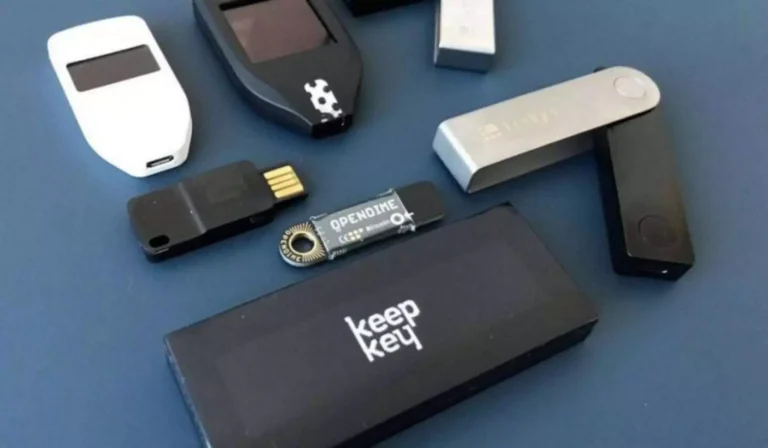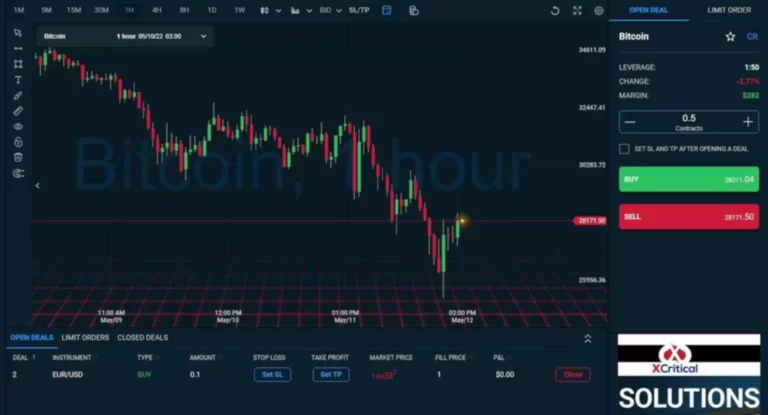Content
In this setup, the crypto exchange is really just a platform that allows for this trading to take place. Brokers, on the List of cryptocurrencies other hand, have a more hands-on role in facilitating these trades. With a crypto broker, the trader uses a broker as an intermediary to access the crypto markets. Crypto brokers enable the trader to buy and sell crypto assets, based on prices set by the broker.

Best Crypto Exchanges & Best Trading Apps in 2025
The Experian Smart Money™ Debit Card is issued by Community Federal Savings Bank (CFSB), https://www.xcritical.com/ pursuant to a license from Mastercard International. Exchanges do have security steps in place, like two-factor authentication and encryption. Yet, because they’re centralized, they’re tempting targets for hackers and can be troubled by law or policy changes.
Best Crypto Exchanges With Lowest Fees: Closing Thoughts

It’s generally harder to steal funds from a cold hardware wallet because a cybercriminal requires physical possession of your hardware device and your device’s password. Before delving into crypto trading demo app the best crypto wallet type, let’s briefly discuss private keys and how they relate to your mobile wallet. Whoever has the private key to a given wallet can transfer or withdraw funds from it. As such, properly securing your wallet’s private key is extremely important for making sure that the funds in that wallet are safe. DISCLAIMERThis article does not constitute investment advice, nor is it an offer or invitation to purchase any crypto assets.

Benefits of a Centralized Crypto Exchange
To fill this demand, fund managers offer cryptocurrency exchange-traded funds (ETFs), a more accessible way to invest in crypto’s digital assets. Business Insider applied its rating methodology for investing platforms to dozens of cryptocurrency exchanges to find the best options for crypto traders. The criteria for comparing crypto exchanges include the platforms’ fees, asset/account security, accessibility score, and customer support.
Two-factor authentication adds an extra layer of protection against unauthorized access attempts while cold storage wallets keep your digital assets safe from hacking attempts. All in all, trading fees are only one piece of the puzzle when evaluating crypto exchanges. By prioritizing factors like security, usability, liquidity, and asset variety, you can choose a platform that meets your trading needs holistically. After all, a great exchange is more than just a low-cost one—it’s one that works seamlessly for you.
Exchange trading often involves various costs, including transaction fees, deposit/withdrawal fees, and potentially wider spreads, particularly during times of high volatility. OTC trades, while typically involving larger quantities, can often negotiate lower fees and tighter spreads, making it more cost-effective for large trades. It’s natural to wonder whether Coinbase is safe, especially if you are investing a lot. While Coinbase is generally a secure platform and has security measures such as two-factor authentication, it’s not impervious to attacks.
In a short period of time, cryptocurrency has gone from a small, alternative investment to one worth hundreds of billions of dollars collectively. Whether you are looking to invest in crypto or use it as a form of payment, you have likely heard of Coinbase. After all, with tens of millions of users, it’s one of the most popular cryptocurrency exchanges. It’s also one of the easiest ways to buy cryptocurrency which has helped fuel its explosion in popularity. The regulatory framework for cryptocurrencies also varies worldwide and directly influences the use of crypto brokers and exchanges.
High-frequency traders should consider exchanges offering tiered VIP programs or membership plans that provide fee reductions based on trading volume or loyalty. These plans are particularly beneficial for traders executing large volumes or frequent transactions. As the global financial landscape continues to evolve, the divide between traditional and digital assets could blur further. Thus, understanding the fundamental similarities and differences between these assets can equip traders in crafting their strategy.
- And while you can now trade Bitcoin, Ethereum and Litecoin nearly 24/7, there’s still a one-hour window between 12 a.m.
- One definition of money is something that is generally accepted as a medium of exchange, a measure or store of value, and a unit of account.
- The stock market is highly regulated, structured, and operates through established exchanges like the New York Stock Exchange (NYSE) or the London Stock Exchange (LSE).
- Cryptocurrencies have also become a favorite of hackers who use them for ransomware activities.
Ready to save your hard-earned Satoshis and level up your crypto trading journey? Let’s get started with the top platforms that are paving the way for budget-conscious traders. That’s why choosing an exchange with low fees isn’t just nice; it’s an essential strategy for staying ahead in the crypto game. From trading fees to withdrawal charges, knowing where your money goes can make all the difference. Yes, typically cryptocurrencies are considered riskier than stocks due to their high volatility, less regulatory oversight, and their relative newness. However, while stocks are generally more stable, they are not immune to risks such as market downturns or company-specific issues.
With our proven strategies and industry insights, you’ll be primed for success. These exchanges cater to different user needs and preferences, each offering unique benefits and drawbacks. Founded in 2011, Bitstamp is one of the industry’s oldest and most established exchanges and is known for its security, reliability, and compliance with regulatory requirements. Another key feature of KuCoin is its referral program, which allows users to earn rewards for referring new users to the platform. In recent months, Binance has also struggled to hold on to its assets, losing billions as customers withdraw funds from the exchange.
They provide users privacy and complete control over their funds since trades are executed directly from wallet to wallet. Choosing the right exchange can feel overwhelming, but a concise comparison table can simplify the decision-making process. Below is a quick reference guide to the top low-fee cryptocurrency exchanges, highlighting their fee structures, features, and supported cryptocurrencies. Cryptocurrency exchanges are like digital highways connecting traders to their crypto aspirations. Whether you’re an investor buying Bitcoin for the first time or a trader flipping through altcoins, those seemingly small fees can stack up and eat into your profits faster than a bear market dip.
As soon as the account is funded, traders may begin swapping cryptocurrencies. The crypto funds in the account remain in the custody of the CEX at all times. The crypto exchange with the lowest fees can vary depending on the specific fee structure and the type of trades being made. Some exchanges offer lower fees for trading but higher fees for deposits and withdrawals. ChangeNOW is a user-friendly cryptocurrency exchange offering quick and non-custodial swaps.
Security, liquidity, ease of use, and the range of supported cryptocurrencies are crucial factors. A low-fee exchange with poor security or limited coin offerings may not meet your needs. Ultimately, your choice should align with your goals—whether it’s saving on fees, exploring niche tokens, or diving into advanced trading tools. The best exchange is the one that empowers your strategy while keeping costs low. KuCoin, often called the “People’s Exchange,” has gained popularity for its wide selection of altcoins and innovative features like copy trading and crypto lending.
One of the most important things for every user should be the exchange’s security features and its trustworthiness, as you’ll want to ensure your funds don’t just suddenly disappear. Private clients can meet with a dedicated account manager for tailored crypto trading solutions, competitive fees, and 24/7 expert guidance from a team of professionals. Abra private accounts have no penalty, withdrawal, or origination fees and charge trades using an open and fixed-term fee and rate pricing model. Although Crypto.com offers a web-based exchange, US investors are limited to its mobile app. Crypto enthusiasts can easily buy, sell, and store popular digital currencies like Bitcoin or altcoins like Ethereum alongside traditional investable securities.
With us, you get unique methods of attracting attention, increasing conversions, and establishing leadership in the industry. Exchanges try to stay safe with things like two-factor authentication and cold storage. But because they’re centralized, they’re more likely to be targeted by hackers. If you don’t have a Fidelity account, making purchases will require you to create and fund an account such as a brokerage or cash management account.
